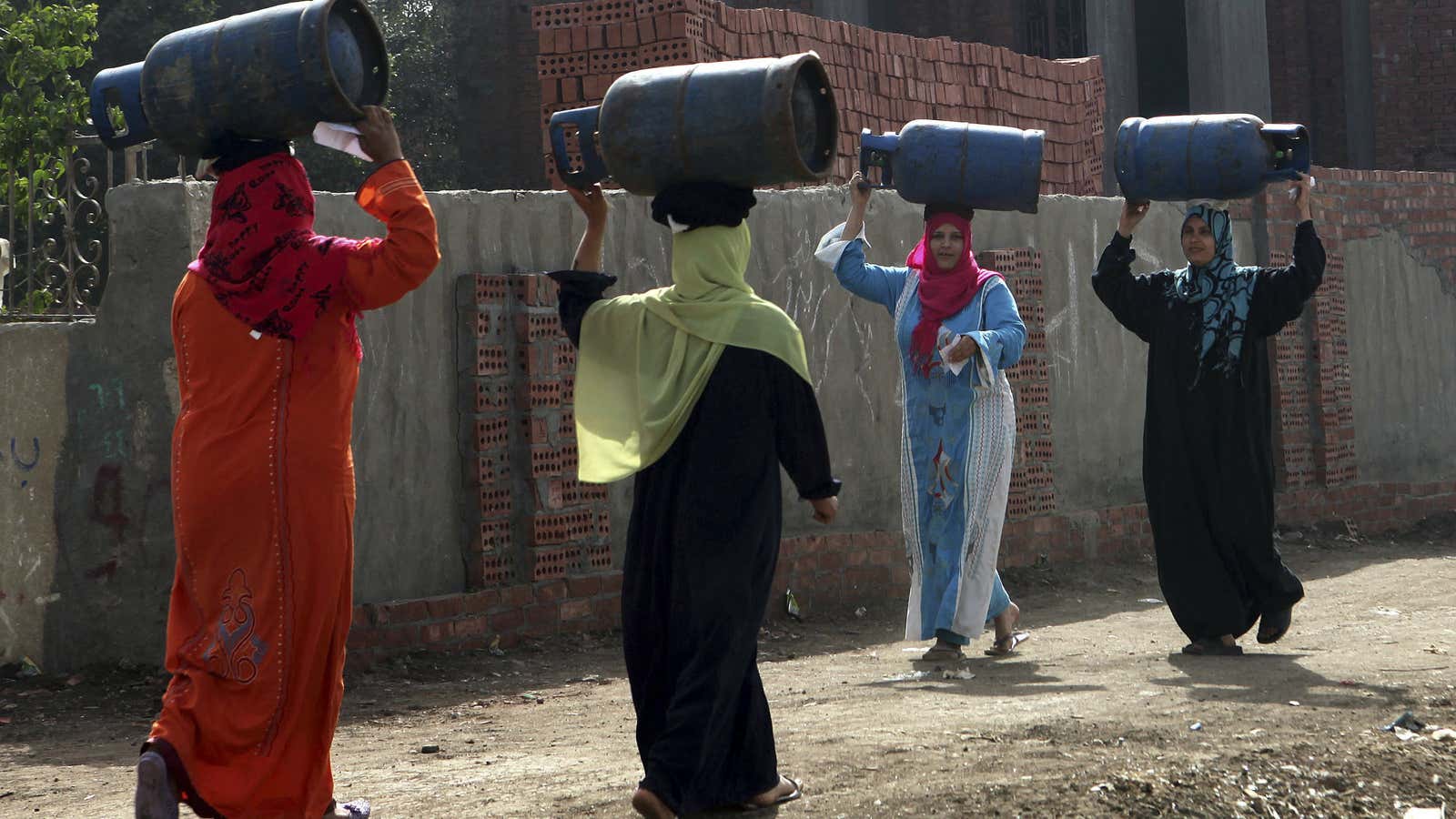British natural gas company BG has signed a preliminarily deal to export $30 billion in Israeli natural gas to Egypt. The agreement deepens Israel’s business ties with its neighbors while confounding attempts to use the gas to loosen Russia’s hold over Europe.
In papers filed yesterday with the Tel Aviv Stock Exchange, Israeli partners in Leviathan, a supergiant gas field, said the tentative deal signed June 27 would ship 7 billion cubic meters of gas annually to BG’s liquefied natural gas (LNG) processing plant in the Egyptian city of Idku for 15 years. The flow, which would use an undersea pipeline that would be financed by BG, would begin in 2017.
Leviathan, situated in the eastern Mediterranean Sea between Israel and Cyprus, contains the gas equivalent of 3.2 billion barrels of oil.
The annual volume of gas that Egypt would receive is about 20% of the field’s expected output, and the field’s developers can still sign other, larger deals. But the agreement adds to signs that much of Israel’s natural gas bonanza will remain in the Middle East. In May, Houston’s Noble Energy and Israel’s Delek Energy signed a separate deal to deliver 4.5 cubic meters of gas a year from Israel’s offshore Tamar field to an Egyptian plant in Damietta. The two companies also previously agreed to supply gas to Jordan and the Palestinian Authority, and along with Avner Oil and Ratio Oil, they are also partners in Leviathan.
Where to sell Israel’s gas has been a matter of domestic debate. Those focused on Europe’s heavy reliance on Russia have pressed for a way to ship the gas north through Greece or Turkey. But the European scenario has been hamstrung by the estimated $5 billion cost of new LNG processing facilities and pipelines, not to mention Israeli security requirements.
The agreement bails out BG, which declared force majeure at Idku in January because it lacked the natural gas to run the plant. Egypt’s natural gas industry has been disrupted since the 2011 Arab Spring. Attacks on an export pipeline halted shipments to Israel in 2010, and the government decided to stop all exports in 2012.
It also explains a May decision by Australia’s Woodside Petroleum to drop a preliminary agreement to pay the Leviathan partners $2.6 billion for a quarter of the field. Woodside favored turning the gas into LNG and exporting it out of the region.
